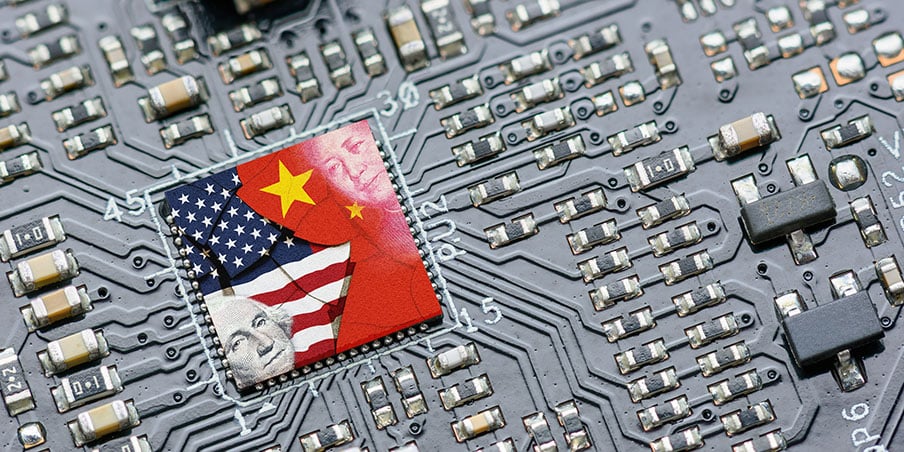In recent years, the tech industry has faced significant shifts due to evolving trade policies and international relations. One of the most notable changes has come from the Biden administration’s approach to tech trade restrictions. These restrictions are designed to address national security concerns, protect intellectual property, and maintain technological superiority. This article provides a comprehensive overview of Biden’s tech trade restrictions, examining their implications for businesses, international relations, and the global tech landscape.
The Evolution of Tech Trade Policies
Under President Joe Biden, the United States has continued to build on and refine the tech trade policies initially set forth during the previous administration. While the Trump administration’s approach was characterized by a more confrontational stance, especially toward China, the Biden administration has adopted a nuanced strategy that balances competition with cooperation. This evolution reflects a recognition of the complex interdependencies in global tech supply chains and the need for a strategic approach to managing them.
Key Aspects of Biden’s Tech Trade Restrictions
1. Focus on National Security
One of the central tenets of Biden’s tech trade restrictions is the emphasis on national security. The administration has taken a strong stance against potential threats posed by foreign entities, particularly from China. This includes restrictions on the acquisition of sensitive technologies and components by companies linked to foreign governments. The aim is to prevent espionage, safeguard critical infrastructure, and ensure that sensitive technologies do not fall into the wrong hands.
2. Protection of Intellectual Property
Intellectual property (IP) theft and forced technology transfers have long been concerns in the tech industry. The Biden administration has implemented measures to protect U.S. IP by scrutinizing foreign acquisitions and investments more closely. This includes reviewing and potentially blocking transactions that could lead to the transfer of critical technologies or trade secrets. The goal is to maintain a competitive edge and encourage innovation within the U.S.
3. Supply Chain Resilience
The COVID-19 pandemic highlighted vulnerabilities in global supply chains, particularly in the tech sector. In response, the Biden administration has sought to enhance supply chain resilience by diversifying sources and reducing dependence on single countries or entities. This involves investing in domestic manufacturing capabilities and fostering partnerships with allied nations to ensure a more secure and reliable supply of critical components.
4. Export Controls
Export controls have been a crucial component of Biden’s tech trade restrictions. The administration has tightened regulations on the export of certain technologies to countries deemed as strategic competitors. These controls aim to prevent the proliferation of advanced technologies that could undermine U.S. technological superiority or contribute to military advancements by rival nations.
Implications for Businesses
Biden’s tech trade restrictions have significant implications for businesses operating in the global tech ecosystem. Companies must navigate a more complex regulatory environment, with increased scrutiny on international transactions and investments. This can lead to delays and additional costs associated with compliance and due diligence.
However, the restrictions also present opportunities. For instance, the emphasis on domestic manufacturing and supply chain resilience can benefit U.S. tech companies by reducing reliance on overseas suppliers and fostering innovation within the country. Additionally, businesses that align with the administration’s focus on national security and IP protection may find new avenues for growth and collaboration.
Impact on International Relations
The tech trade restrictions under the Biden administration have had a notable impact on international relations. While the U.S. has sought to strengthen alliances with like-minded countries and promote collective security, tensions with strategic competitors, particularly China, have been a focal point.
The restrictions have contributed to a more fragmented global tech landscape, with countries and companies increasingly aligning with either the U.S. or China. This bifurcation could lead to a realignment of global tech supply chains and influence the development of international standards and regulations tech trader.xyz/.
The Future of Tech Trade Restrictions
As technology continues to evolve rapidly, the landscape of tech trade restrictions will likely continue to shift. The Biden administration’s approach reflects a broader recognition of the need to balance national security with global cooperation and economic growth. Future developments may include further refinement of existing policies, new regulations to address emerging technologies, and ongoing efforts to strengthen international alliances.
Conclusion
Biden’s tech trade restrictions represent a strategic response to the complex challenges facing the global tech industry. By focusing on national security, intellectual property protection, supply chain resilience, and export controls, the administration aims to safeguard U.S. interests and maintain technological leadership. While these restrictions present both challenges and opportunities for businesses, they also highlight the evolving dynamics of international tech trade and the importance of navigating this landscape with foresight and adaptability.

